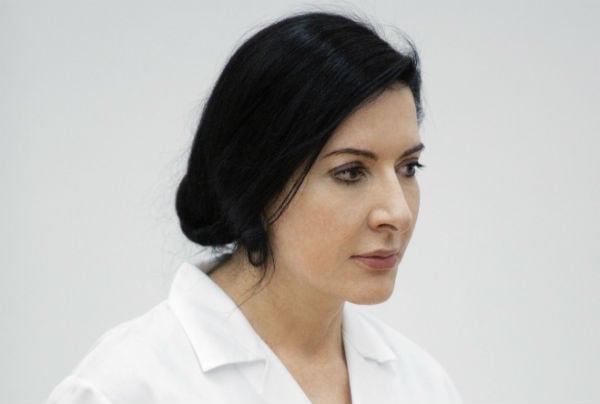Art & Exhibitions
Does Marina Abramović Exploit Unpaid Volunteers?
The Marina Abramović Institute—so cool you'd work there for free?

The Marina Abramović Institute—so cool you'd work there for free?

Sarah Cascone

The Marina Abramović Institute (MAI) has come under fire for looking to fill four unpaid “volunteer” positions, each with a lengthy list of requirements and responsibilities. Now, reports the Los Angeles Times, the organization is responding to criticism in a statement defending its decision to offer “education, community, and participation to those who feel they will personally or professionally benefit from volunteering.”
The statement claims MAI has “received frequent unsolicited requests to volunteer and collaborate,” and that “seeking volunteers is an important way to include interested individuals in our community even when we have no paid positions available.” To be fair, none of the organization’s founders received a salary according to 2011 and 2012 tax returns. That has presumably since changed, as four full-time employees and one part-time employee currently work out of MAI’s New York office.
As originally reported by Hyperallergic, MAI, looking to augment this small, salaried staff, advertised for “administrative,” “tech and production,” “special projects,” and “research” volunteers on the New York Foundation for the Arts (NYFA) job listings site. Each position had quite specific requirements—the ideal administrative volunteer, for instance, has “excellent writing skills, the ability to multi-task, proficiency in Microsoft Word and Microsoft Excel, and prior experience working in a fast-paced arts non-profit or other administrative position. Knowledge of and passion for the arts a strong plus.”
The original job postings cite intangible compensation for their unpaid work such as the “unique opportunity to hone technology skills on a highly visible, emerging arts platform” and “to grow within the organization and expand professional networks.”
MAI’s search for volunteer labor is part of a wider trend in which young, inexperienced artists and cultural workers starting their careers are forced to settle for unpaid or underpaid positions where things like “exposure” and “experience” are supposed to make up for the lack of a living wage.
Although Marina Abramović has donated much of her own money and time to her fledgling organization, which has had to rely on a Kickstarter campaign to get operations off the ground, MAI’s search for unpaid labor still does not sit well with many.
As the Times points out, the institute will soon get a $20 million Rem Koolhaus-designed home, and the artist’s personal, multi-million dollar real estate transactions are noteworthy enough to warrant their own page on Curbed—to say nothing of her recent collaboration with Adidas in a sneaker commercial, of all things (see artnet News report).
While the artist’s finances are decidedly separate from those of the Institute, Abramović’s willingness to build her next venture on the backs of volunteer still seems reflective of growing inequality in the art world where organizations take advantage of young people who have internalized the message that they must pay their dues in unpaid positions before they can expect to be compensated for their work.
If working for free for the mother of modern performance art sounds like your cup of tea, you have until August 12 to apply.
Read the full statement from the Marina Abramović Institute’s communications director, Siena Oristaglio:
Marina Abramović Institute (MAI), like all independent non-profit organizations, relies on the good will and contributions of its supporters. We embrace the tradition of offering education, community, and participation to those who feel they will personally or professionally benefit from volunteering. I began as a volunteer for MAI and found that my connection to this community of artists, scientists, and organizations provided profound transformational opportunities in my career and in my life. In my case, working as a volunteer developed into a full-time position at MAI, and we hope to provide similar opportunities for other volunteers as we expand our organizational capacities through fundraising endeavors. Other MAI volunteers have gone on to receive job opportunities at organizations working within in the arts and sciences via our wide professional network.
MAI is dedicated to the preservation and advancement of long durational and immaterial art. We have four full-time and one part-time staff member and we collaborate with a wide network of artists, writers, scientists, and partner organizations. All of our staff and collaborators are excited to share their professional experience with volunteers. We feel that seeking volunteers is an important way to include interested individuals in our community even when we have no paid positions available.
The Kickstarter we ran last year successfully funded phase one of the Institute’s development, and the community that grew out of this campaign allowed us to launch programs like IMMATERIAL, our digital journal, and a series of workshops, marathon readings, and installations around the world. Since then, MAI has received frequent unsolicited requests to volunteer and collaborate. We are committed to providing our volunteers with mentorship and experience, but most importantly with an opportunity to contribute to the creation of the first arts organization in history dedicated to long durational work at the intersection of art, sciences, and humanities. We believe in the transformational power of immaterial art and multidisciplinary collaboration and we seek volunteers who feel the same way to join us to create a future for our Institute.